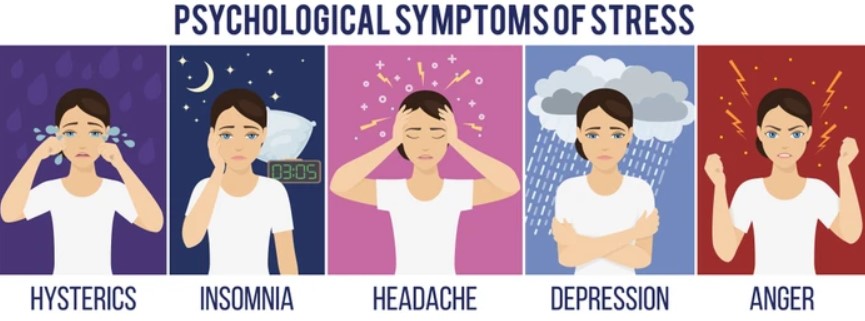Burn Bright, Not Out 
If you’re reading this article, chances are you know burnout has become a common challenge for many professionals. Characterized by chronic stress, exhaustion, and a sense of detachment, it can really impact both personal well-being and job performance. However, it’s possible to be happy and excel in your career without succumbing to burnout. By adopting effective strategies and maintaining a healthy work-life balance, you can sustain your energy, passion, and productivity. Let’s explore practical tips and insights to help you burn bright, not out, ensuring success and fulfillment in your professional life.
The Components of Burnout
Burnout is more than just being tired. It’s a diagnosable state of emotional, physical and mental exhaustion brought on by long-term stress. According to Emily and Amelia Nagoski, authors of their book Burnout: The Secret to Unlocking the Stress Cycle”, there are 3 main components of burnout: emotional exhaustion, lack of accomplishment and depletion of empathy.
- Emotional Exhaustion: This is the deep-seated fatigue that comes from prolonged stress, where you feel like you’ve been running on empty for too long. You might experience sleep disruptions, difficulty focusing, shifts in mood like increased anxiety or irritability, and even physical symptoms like headaches or dizziness.
- Lack of Accomplishment: An unconquerable sense of futility – feeling that nothing you do makes a difference. You’ll likely experience feelings of apathy and hopelessness, increased irritability, lack of productivity, and poor performance.
- Depletion of Empathy: The depletion of empathy, caring, and compassion. In this phase you’ll experience a host of negative consequences, loss of enjoyment, pessimism, isolation, detachment, and disconnection.
The Stages of Burnout
There are five stages of burnout. By understanding the stages and creating a sense of awareness, you can catch yourself before things get too bleak.
- Stage 1: Honeymoon Phase
In the initial ‘honeymoon’ phase, you’re often excited and energized. But even then, small challenges can arise. That’s the perfect time to build healthy habits – like taking short breaks, setting realistic goals, and communicating openly. By doing this early, you can keep that positive momentum going.
- Stage 2: Onset of Stress
The second stage of burnout starts with the realization that some days are more challenging than others. You might notice a decline in your optimism and begin to experience common stress symptoms that impact you physically, mentally, or emotionally. Symptoms can include a lack of social interaction, forgetfulness, general neglect of personal needs, job dissatisfaction, headaches, and grinding your teeth at night.
- Stage 3: Chronic Stress
 As you sink deeper stress becomes chronic. This represents a significant shift in your stress levels, transitioning from motivation to experiencing stress almost constantly. Symptoms here include physical illness, cynicism, feeling threatened or panicked, increasing alcohol/drug consumption, resentfulness, and procrastination. It’s time to correct course.
As you sink deeper stress becomes chronic. This represents a significant shift in your stress levels, transitioning from motivation to experiencing stress almost constantly. Symptoms here include physical illness, cynicism, feeling threatened or panicked, increasing alcohol/drug consumption, resentfulness, and procrastination. It’s time to correct course.
- Stage 4: Burnout
Now we’ve arrived at full-blown burnout, and symptoms become severe. At this point, continuing with your usual routine often becomes impossible as coping becomes increasingly difficult. Everyone has their own limits of tolerance, so it’s crucial to seek intervention at this point. Stage four includes self-doubt, isolation, neglect of personal needs, desire to move away from work or friends/family, feeling empty inside, and a development of an escapist mentality.
- Stage 5: Habitual Burnout
The final stage is habitual burnout. This means that the symptoms of burnout are so embedded in your life that you are likely experiencing significant ongoing mental, physical or emotional problems, as opposed to occasionally experiencing them. Common symptoms include chronic mental fatigue, depression, and physical fatigue.
To combat burnout, it’s crucial to prioritize self-care by setting boundaries, taking regular breaks, engaging in activities that bring joy, and seeking support from friends, family, or professionals. Taking care of yourself is at the root of combating this sneaky problem. A refreshed you is more productive!
Author

Brittany Kowalski was one of the very first Nationally Board-Certified Health and Wellness Coaches in the country and earned her original certification through the University of Delaware’s Graduate program.
While sports medicine was her first passion, she became drawn to preventative approaches with her patients and threw herself into learning ways to help motivate people to manage and prevent chronic diseases. Her diverse experiences as a health promotion specialist including diabetes lifestyle coaching, mental health initiatives, and even laughter therapy programs, have allowed her to walk beside and help guide people on their wellness journeys.
Over her career, she has been sought out as an expert in the field of Health Coaching including speaking opportunities for the American Diabetes Association, the Medical Affairs Professionals Global Conference, Rutgers University, American College of Preventative Medicine, and the National Wellness Conference.In addition to her work as a clinician, she has also helped to initiate health coaching programs in various large-scale hospitals across the nation with focuses on cardiometabolic, pulmonary, bariatric, and physical therapy.


